The Fannie and John Hertz Foundation Announces 2020 Fellows
The Fannie and John Hertz Foundation, a nonprofit organization dedicated to empowering the most promising innovators in science and technology, has announced the 2020 recipients of the Hertz Fellowship.
The Hertz Fellowship supports the research of PhD students who demonstrate the greatest potential to tackle the most urgent problems facing society. This year’s fellowships will fund 16 researchers whose goals range from developing drugs more quickly, cheaply, and effectively, to advancing artificial intelligence to creating a carbon-neutral future.
One of the most prestigious awards of its kind, the Hertz Fellowship supports five years of graduate research and the freedom to pursue innovative ideas, wherever they may lead. Hertz Fellows also receive lifelong professional support, including mentoring and networking within a connected, influential community of more than 1,200 leaders in science and technology, each of whom has been awarded the Hertz Fellowship since 1963.
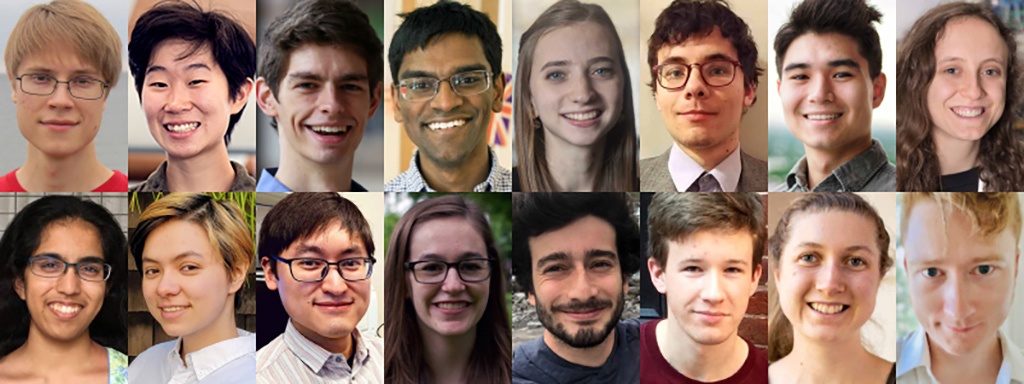
“The pursuits of our 2020 Hertz Fellows embody the type of bold, risk-taking research that the Hertz Foundation has supported for almost six decades,” said Robbee Baker Kosak, president of the Fannie and John Hertz Foundation. “By funding innovative thinkers and connecting visionary researchers across generations, geography, and disciplines, we create the conditions for our fellows to have an exponential impact on the most pressing problems facing our nation and world.”
Selected through a rigorous process, including in-depth interviews with some of the nation’s top scientists, engineers, and mathematicians, the newest Hertz Fellows were selected from a pool of more than 800 applicants from 24 universities across the nation.
“We strive to identify young researchers with the vision and drive to achieve the breakthroughs that are needed today in science and technology,” said Philip Welkhoff, senior interviewer and member of the board of directors at the Hertz Foundation, as well as the malaria program director at the Bill & Melinda Gates Foundation. “As a society, we benefit tremendously from empowering them with the freedom to leap into the unknown and explore the possibilities.”
The 2020 class joins a community of fellows whose transformative research and daring innovation impact our lives every day. Hertz Fellows are developing a drug therapy to restore hearing, data-driven methods to detect cyber threats, technology to genetically eradicate invasive plant species, and immunotherapy to support universal organ transplants. They’ve created hack-proof drones for the military and proven the Big Bang theory of the origin of the universe.
Many Hertz Fellows are currently focusing their work on addressing the COVID-19 pandemic. Anna Bershteyn is co-principal investigator in a clinical trial to determine if the antimalarial drug hydroxychloroquine can prevent COVID-19 from developing in people who’ve been recently exposed to the virus. In work published in Nature, Cheri Ackerman and Cameron Myhrvold collaborated on the development of diagnostic technology that can simultaneously test 1,000 samples for 160 different viruses.
Over the foundation’s 57-year history of awarding fellowships, Hertz Fellows have established a remarkable track record of accomplishments. Their ranks include two Nobel laureates; two MacArthur Fellows; eight recipients of the Breakthrough Prize; and winners of the Turing Award, the Fields Medal, the National Medal of Technology, and the Wall Street Journal Technology Innovation Award. In addition, 43 are members of the National Academies of Sciences, Engineering, and Medicine, and 12 have been included in Forbes magazine’s “30 under 30” list. Hertz Fellows have founded more than 200 companies and hold more than 3,000 patents.
Hertz Fellowship Class of 2020
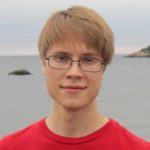
Alexander Alabugin aspires to advance energy science by characterizing and controlling elementary transactions of small molecules, protons, photons, and electrons. His goal is to unravel inorganic reaction mechanisms with techniques ranging from x-ray absorption to electron resonance and Mössbauer spectroscopy. A senior in chemistry at Massachusetts Institute of Technology, Alexander is also a fellow of the National Science Foundation.

An Eckhardt Graduate Scholar in the Enrico Fermi Institute at the University of Chicago, Daine Danielson envisions a world in which a global network of neutrino-based nuclear monitoring technologies is used to root out clandestine weapons manufacturing, reducing the threat of nuclear terrorism and war. His research explores the phenomenology of fundamental particles and fields, developing novel applications toward nuclear security and nonproliferation, and deepening our understanding of the natural world. Cofounder and chief architect of the medical education platform Whitekoat, Inc., he holds a bachelor’s in computational physics with a minor in mathematics from the University of California, Davis.
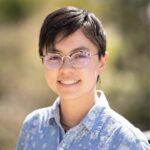
Alyssa Dayan hopes to further our knowledge about intelligence and cognition while enabling smarter new technologies that can help the world. A machine learning research scientist on the research and development team at Uber Advanced Technologies Group, where she works on simulation and prediction for autonomous vehicles, she received a bachelor’s in mathematics with computer science from Massachusetts Institute of Technology in 2018.
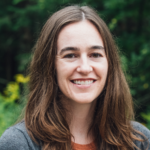
Exploring the numerous connections between physics and representation theory, Marisa Gaetz conducts research with potential applications for quantum mechanics. A senior at Massachusetts Institute of Technology, she is graduating with a bachelor’s degree in mathematics and a minor in philosophy. Outside of her research, Marisa works to improve diversity and inclusivity within the mathematics community. A leader of the MIT Prison Education Initiative, she also focuses on using education and technology to improve the criminal justice system and reduce mass incarceration.

By connecting engineering design and fundamental physics, Jakob Grzesik hopes to create new quantum-based technologies to address problems in energy, computation, and communication. A senior completing dual degrees in electrical engineering and mathematics at Rice University, Jakob aims to apply his growing expertise in optical properties of nanoscale materials to develop novel photonic technologies for applications in quantum computation, communication, and energy.
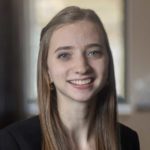
Hannah Lawrence is interested in developing theoretical foundations for new algorithms at the interface of machine learning, data science, and signal processing, with potential impact in drug development and other applications. She is particularly interested in broadening our understanding of how structure and scientifically informed priors can be incorporated into learning problems and frameworks. Currently a research analyst at the Center for Computational Mathematics at the Flatiron Institute, Hannah is a 2019 graduate of Yale University with a bachelor’s in applied mathematics and computer science.
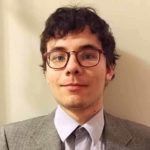
Isaac Metcalf hopes his research can help push the nation and world toward a carbon-neutral future. A senior at Massachusetts Institute of Technology, Isaac is graduating with dual degrees in physics and materials science. He will join the Materials Physics for Energy Management group at Rice University, where he plans to focus his research on increasing the efficiency and stability of two-dimensional perovskite photovoltaics.
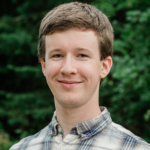
Nolan Peard is interested in light-matter interactions and their applications in chemistry and quantum optics. He is particularly interested in the potential of optical techniques to control quantum states of molecules and their interactions, enabling fundamental understanding of chemistry that may be used to create materials and molecules with new capabilities. He is graduating with dual degrees in physics and music from Massachusetts Institute of Technology.
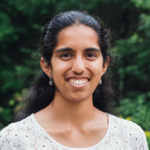
Maya Sankar is interested in researching combinatorics and graph theory, particularly studying extremal problems and their ties to theoretical computer science. A senior at Massachusetts Institute of Technology, she is graduating with dual degrees in mathematics and computer science and a minor in music.
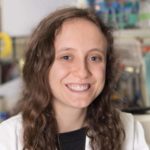
Combining computational and experimental methodologies in her biological research, Jillian Silbert believes that interdisciplinary work is the key to furthering scientific knowledge and crafting creative solutions to environmental and health issues. She plans to study interactions within the bacterial communities and applications of microbiology research to current environmental and biomedical issues. Jillian graduated magna cum laude from Princeton University in 2018, with a bachelor’s degree in molecular biology and a minor in quantitative and computational biology. She studied as a Fulbright Scholar at the National Center of Biotechnology in Madrid.

By tackling difficult questions in computational structural biology, Vikram Sundar hopes to help scientists develop drugs more quickly, cheaply, and effectively. He plans to combine his knowledge of physics and machine learning to tackle problems ranging from understanding protein/ligand binding for drug discovery to designing proteins with specific functions. Vikram received a bachelor’s degree in mathematics and a master’s degree in physics from Harvard University in 2018 and a master’s degree in chemistry from the University of Cambridge, where he was a Churchill Scholar, in 2019. He is currently an AI resident at Google.
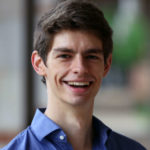
Constantine Tzouanas’s long-term goal is to engineer biological systems to address pressing needs, from organ transplants to environmentally responsible chemical production. A National Science Foundation Graduate Research Fellow in the Harvard-MIT Health Sciences and Technology program, he is pursuing a PhD in medical engineering and medical physics with a concentration in biological engineering. He graduated summa cum laude from Rice University in 2019 with a bachelor’s degree in bioengineering and a minor in neuroscience.
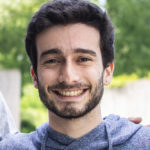
Nico Valdes Meller hopes that a more profound understanding of networks can help us be better prepared for the technological revolutions to come. Aiming to work at the interface of theoretical physics and its applications by studying field theory, gravitation, and quantum information, Nico will pursue his PhD after completing a one-year master’s program at Perimeter Scholars International. He received a bachelor’s degree in physics from the University of Chile.
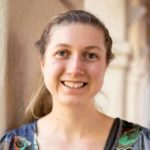
By exploring the limits and capabilities of biological systems and such fundamental processes as evolution, Sophie Walton hopes to further the applications of biophysics research. A senior at California Institute of Technology, she is graduating with a bachelor’s degree in bioengineering.
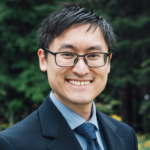
An MD/PhD student at the University of Pittsburgh and Carnegie Mellon University, Maxwell Wang is conducting research with the goal of understanding how brain networks change during neuro-interventions, such as deep brain stimulation, and to link these changes to end-points such as symptom improvement and adverse side-effect profiles. A graduate of Washington University in St. Louis with a bachelor’s degree in electrical engineering, he began taking math courses at the University of Illinois, Urbana-Champaign, when he was in fifth grade and published his first research paper while a young teenager.
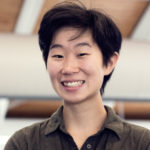
The role of physics in biology motivates Katherine Xiang to understand the natural world better, particularly in energy flow and transport in biological systems. A senior at Johns Hopkins University, she is graduating with a bachelor’s degree in physics, biophysics, and mathematics.
About the Fannie and John Hertz Foundation
The Fannie and John Hertz Foundation identifies the nation’s most promising innovators in science and technology, and empowers them to pursue solutions to the world’s toughest challenges. Launched in 1963, the Hertz Fellowship is the most exclusive fellowship program in the United States, fueling more than 1,200 leaders, disruptors, and creators who apply their remarkable talent where it's needed most—from improving human health to protecting the health of the planet. Hertz Fellows hold 3,000+ patents, have founded 200+ companies, and have received 200+ major national and international awards, including two Nobel Prizes, eight Breakthrough Prizes, the National Medal of Technology, the Fields Medal, and the Turing Award. Learn more at HertzFoundation.org.
